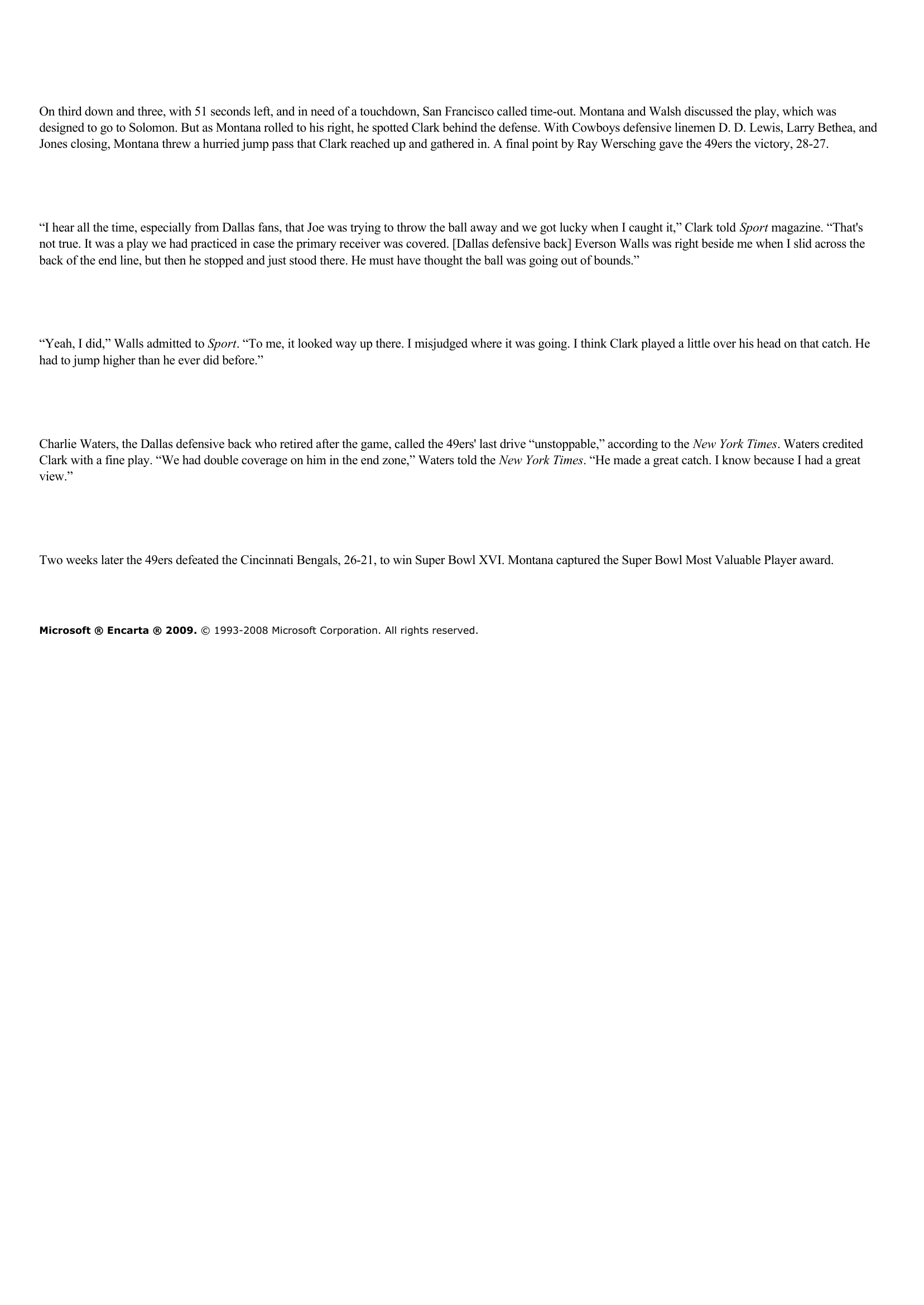Dwight Clark's Catch.
Publié le 14/05/2013

Extrait du document
«
On third down and three, with 51 seconds left, and in need of a touchdown, San Francisco called time-out.
Montana and Walsh discussed the play, which wasdesigned to go to Solomon.
But as Montana rolled to his right, he spotted Clark behind the defense.
With Cowboys defensive linemen D.
D.
Lewis, Larry Bethea, andJones closing, Montana threw a hurried jump pass that Clark reached up and gathered in.
A final point by Ray Wersching gave the 49ers the victory, 28-27.
“I hear all the time, especially from Dallas fans, that Joe was trying to throw the ball away and we got lucky when I caught it,” Clark told Sport magazine.
“That's not true.
It was a play we had practiced in case the primary receiver was covered.
[Dallas defensive back] Everson Walls was right beside me when I slid across theback of the end line, but then he stopped and just stood there.
He must have thought the ball was going out of bounds.”
“Yeah, I did,” Walls admitted to Sport .
“To me, it looked way up there.
I misjudged where it was going.
I think Clark played a little over his head on that catch.
He had to jump higher than he ever did before.”
Charlie Waters, the Dallas defensive back who retired after the game, called the 49ers' last drive “unstoppable,” according to the New York Times .
Waters credited Clark with a fine play.
“We had double coverage on him in the end zone,” Waters told the New York Times .
“He made a great catch.
I know because I had a great view.”
Two weeks later the 49ers defeated the Cincinnati Bengals, 26-21, to win Super Bowl XVI.
Montana captured the Super Bowl Most Valuable Player award.
Microsoft ® Encarta ® 2009. © 1993-2008 Microsoft Corporation.
All rights reserved..
»
↓↓↓ APERÇU DU DOCUMENT ↓↓↓
Liens utiles
- Dwight David Eisenhower par Serge Hurtig Secrétaire général de la Fondation Nationale
- Meriwether Lewis 1774-1809 L'expédition de Lewis et Clark (1803-1806) est un des grands exploits qui marquent l'histoire de l'exploration du continent américain.
- James-Clark Ross par René Gouzy Ce matin-là - c'était le 28 janvier 1842 - deux robustes navires se trouvaient par 76° 27' de latitude sud et 167° 45' de longitude est, dans une mer plus ou moins libre, inconnue jusqu'alors.
- Gable, Clark - acteur / actrice.
- Clark, Jim - sport.


